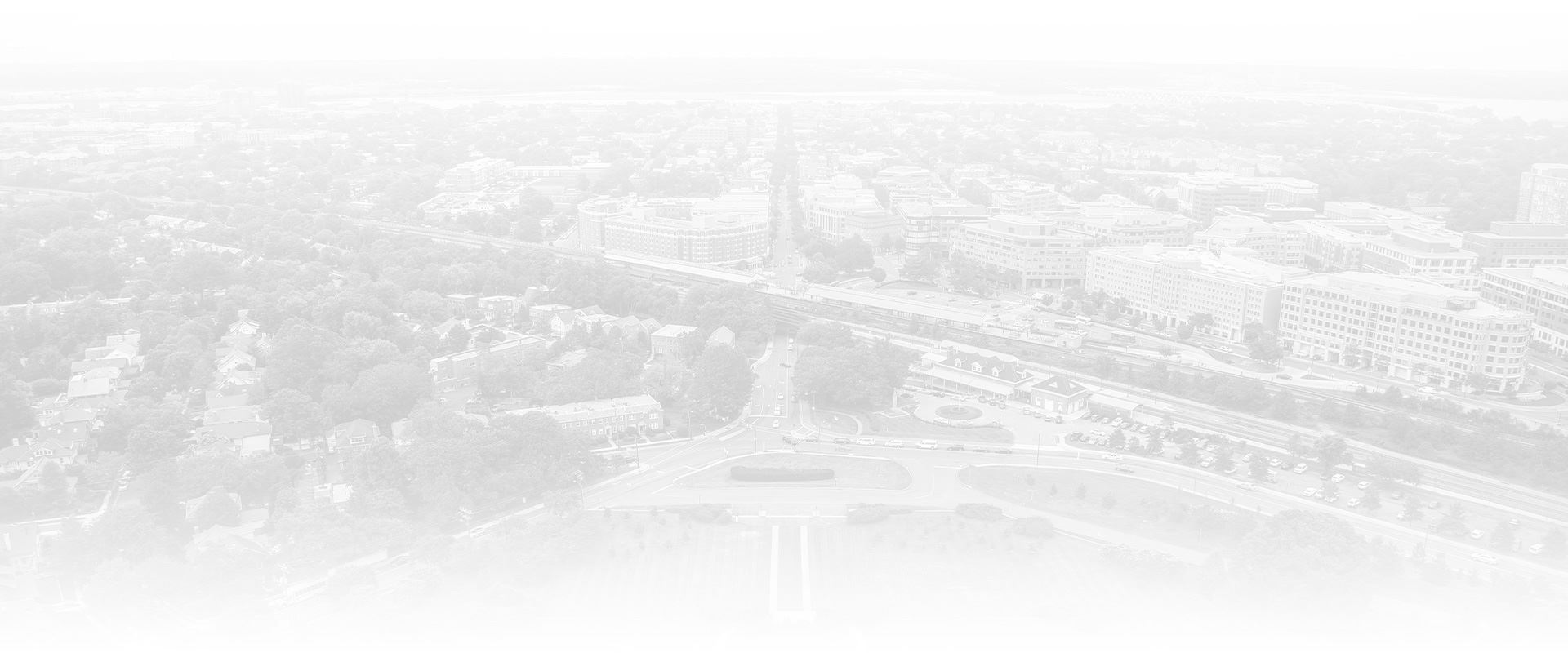
Alexandria reckless driving Defense Lawyers
Defending Reckless Driving Charges in Northern Virginia
Our lawyers regularly defend reckless driving charges in all Northern Virginia jurisdictions as well as reckless charges that occur on the George Washington Parkway in the United States District Court for the Eastern District of Virginia.
In Virginia, reckless driving is a Class 1 misdemeanor. Va. Code §46.2-868(A). In the United States District Court for the Eastern District of Virginia, reckless driving charges that occur on the George Washington Parkway are federal petty offenses
In addition to a potential jail sentence and fine, in Virginia state courts, reckless driving may also be punished by a license suspension of up to six months. See Va. Code §46.2-392 and §46.2-393.
The basic reckless driving statute states:
Irrespective of the maximum speeds permitted by law, any person who drives a vehicle on any highway recklessly or at a speed or in a manner so as to endanger the life, limb, or property of any person shall be guilty of reckless driving. Va. Code §46.2-852.
Reckless driving has been defined as “a disregard by the driver of a motor vehicle for the consequences of his act and an indifference to the safety of life, limb or property.” Powers v. Commonwealth, 211 Va. 386, ___, 177 S.E.2d 628, 630 (1970). Upon a person being charged with reckless driving, where the culpability of the driver is “slight”, the court may find a defendant guilty of the traffic infraction of improper driving and impose a fine of not more than $500. See: Va. Code §46.2-869. Furthermore, a prosecutor can agree to reduce a reckless driving charge to improper driving as part of plea negotiations.
Reckless Driving By Speed
The most common reckless driving offense is reckless driving by speed. Virginia Code §46.2-862 states that “[a] person shall be guilty of reckless driving who drives a motor vehicle on the highways in the Commonwealth (i) at a speed of twenty miles per hour or more in excess of the applicable maximum speed limit or (ii) in excess of eighty miles per hour regardless of the applicable maximum speed limit.”
Some general district court judges will reduce a reckless by speed charge to a speeding infraction (see Va. Code §46.2-870) if the speed not too high, and if the defendant has a good driving record. This is practice varies amongst judges in different Northern Virginia jurisdictions.
In many Northern Virginia jurisdictions, prosecutors will reduce reckless driving charges to speeding infractions if the speed is not too high and if the defendant has mitigating evidence in their favor. This type of mitigating evidence can be completion of a traffic school, completion of community service, or a calibration showing that the vehicle’s speedometer was inaccurate.
If the speed is in excess of 90 mph, some Northern Virginia prosecutors will seek a jail sentence and license suspension. Some judges will impose those penalties if you are found guilty at trial. Mitigating evidence such as traffic school, community service, and a speedometer calibration can be used to avoid jail or a license suspension when the speed is above 90 mph.
Other Reckless Driving Offenses
Virginia Code §§46.2-853 to 864, define a number of other traffic offenses as reckless driving including passing a school bus, faulty breaks, two vehicles in the same lane (i.e. motorcycles), and driving too fast for conditions. To speak with our of our traffic attorneys, contact us at (703) 468-8557.
“Powers Case” – Accident Does Not Give Rise to Inference of Reckless Driving
Officers sometimes charge a defendant with reckless driving after the defendant’s involvement in an accident. However, if an accident occurs, and there is no explanation offered for the accident (no defendant admissions or independent witness testimony) the driver should in general not be convicted of reckless driving. Some courts view this situation as a “Powers Case,” requiring acquittal.
As stated in Powers v. Commonwealth, “[t]he mere happening of an accident does not give rise to an inference of reckless driving.”211 Va. 386 (1970). In Powers, the defendant was involved in a serious one car accident. No one saw the accident and no statements of the defendant were offered. A state trooper conducted an accident reconstruction. He testified the:
“Defendant’s automobile left impressions on the road for a distance of over 840 feet before it veered off the east side of the highway, struck and ‘debarked’ two trees which were 20 feet apart, and finally came to rest in a ditch on the west side of the highway. The motor was wrenched from the car, and it was found 36 feet from where the car had come to rest. The car traveled out of control a distance of over 900 feet.”
It was further reported the accident occurred at night, the speed limit was 55 mph, and the highway level, dry, black-top, with a slight curve, with no defects in the roadway and no traffic controls. The night was dark and clear.
The Virginia Supreme Court found the evidence failed to exclude every reasonable hypothesis of innocence and reversed the reckless driving conviction finding of the trial court. The Court commented there was no way from the evidence to determine the accident’s cause—it could have been a stuck accelerator, sudden illness of the driver, a steering problem.
The Court reached a similar conclusion in Bacon v. Commonwealth, 263 S.E.2d 390, 220 Va. 766 (Va., 1980). The Defendant in Bacon stated to a state trooper that he had been run off a country road, which was uncontradicted by the evidence, resulting in his car going “off the right shoulder of the road and proceeded, apparently out of control, to strike a tree, to graze a telephone pole, and then to skid across the roadway where it struck a second tree.” The car “traveled a total distance of 362 feet from the point at which the vehicle first left the highway until it came to rest.” On this evidence, the Court reversed his improper driving conviction as Bacon’s explanation was not at all incredible. Id. (“We cannot say that the defendant’s explanation of how the accident occurred and of what caused him to lose control of his car is incredible on unworthy of belief. The evidence neither excludes every reasonable hypothesis of innocence nor is it consistent only with the guilt of defendant. The fact that the defendant was found guilty of improper driving, which indicates a slight degree of culpability, is not material. Both reckless driving and improper driving are criminal offenses and to sustain a conviction of either the Commonwealth’s evidence must establish guilt beyond a reasonable doubt.”).
Defenses to reckless driving may include technical challenges of the officer’s calibration of his speedometer, radar, or LIDAR as well as factual challenges (e.g. the officer got the wrong vehicle and/or his speed measuring device is inaccurate).
ALCOHOL RELATED RECKLESS DRIVING –WET RECKLESS?
A “wet reckless,” in traffic terms, is a DUI broken down by the prosecution during plea bargaining to reckless driving on the condition the defendant attends ASAP. Judges, in close DUI cases, have been known to do the same sua sponte.
It does not follow, however, a defendant who has consumed alcohol, even if intoxicated, is guilty of reckless driving—that is, in disregard of “the consequences of his act and an indifference to the safety of life, limb or property” of others. Powers v. Commonwealth, 211 Va. 386, ___, 177 S.E.2d 628, 630 (1970). This does not prevent officers from sometimes charging defendants with reckless driving after a traffic stop or responding to an accident scene upon administering a preliminary breath test that demonstrates alcohol consumption—occasionally, the officer is doing a conscious favor to the defendant rather than arresting the defendant for DUI.
Often, such a charge is improper–evidence of drinking alcohol, without more, does not give rise to an inference of reckless driving. See Hall v. Commonwealth, 25 Va. App. 352 (1997)(appellant’s .17 BAC did not give rise to an inference appellant drove in a reckless manner where appellant was found in her vehicle “passed out” behind the wheel and vehicle was situated in a travel lane of a roadway); Thompson v. Commonwealth, 27 Va. App. 720 (1998)(stating that “assuming, without deciding, that the evidence proved defendant had been driving the car while intoxicated at the time of the collision, it establishes little else. The record does not disclose the time of the accident, the manner in which defendant drove the car, his blood alcohol level, the road conditions, weather, traffic controls, or other circumstances probative of a Code § 46.2-852 violation. Reckless driving is not a status offense, and defendant cannot be convicted upon “speculation and conjecture as to what caused [him] to lose control of the car.” Powers, 211 Va. at 389, 177 S.E.2d at 630. Thus, under the instant facts, we find the evidence insufficient to support a conviction for reckless driving.”). However, evidence of intoxication could be considered a factor of making a reckless driving charge. Bishop v. Commonwealth, 20 Va. App. 206, 210 (1995)( stating that while “[e]vidence of intoxication is not per se proof of reckless driving, . . . it is a factor to consider in assessing dangerous or reckless driving in a given case.”).
REGULARLY DEFEND RECKLESS DRIVING CHARGES IN ALL NORTHERN VIRGINIA
1 A class 1 misdemeanor carries a maximum jail sentence of 12 months and/or a fine of up to $2500.
2 In addition to other penalties prescribed by the reckless driving statutes, under Virginia Code §§46.2-392 and 393, a court may suspend a person’s driving license upon a reckless driving conviction. If the person is convicted under the general reckless driving statute (Va. Code §46.2-852), the court may impose a license suspension ranging from 10 days to six months. Va. Code §46.2-392. Under other reckless driving statutes (§§46.2-853 to 864), including reckless driving by speed under Virginia Code §46.2-862, a court may impose a suspension from 60 days to six months. Va. Code §46.2-393.
A court, suspending a person’s license, “may, in its discretion and for good cause shown, provide that such person be issued a restricted permit to operate a motor vehicle during the period of suspension for any of the purposes set forth in subsection E of [Virginia Code] § 18.2-271.1.” Va. Code §46.2-392; Va. Code §46.2-393(B).
A court may also require a defendant convicted of reckless driving, if alcohol or drug-related, to complete the Virginia Alcohol Safety Action Program (VASAP). While a person may obtain restricted driving privileges if ordered to complete VASAP, full restoration of the defendant’s driving privileges “requires the person to enter into and successfully complete an alcohol safety action program” and “the Commissioner shall not reinstate the driver’s license of the person until receipt of certification that the person has enrolled in an alcohol safety action program.” Va. Code §46.2-392.
AWARDS & ASSOCIATIONS


WHAT PEOPLE SAY
At King, Campbell, Poretz, and Mitchell, your satisfaction is our priority! See for yourself what our clients have to say about working with us.
-
"I'd recommend him to anyone in need of help. Very patient and understanding. Walks you through the entire process step by step"
Mr. Ryan Campbell is The Great Lawyer! Very knowledgeable about the law and had my case dismissed!
- Eduardo O. -
"Ryan Campbell is an outstanding attorney."
Ryan showed he had an excellent command of the facts and the decisions I faced heading into trial.
- Jason F. -
"Besides marrying my wife, hiring Joe King as my attorney was the best decision of my life."
Right from the start, I felt like I was in good hands. I could tell Joe King really cared about my situation and believed me.
- Mark T. -
"I needed an attorney for a traffic related ticket, that could have been very bad, and was referred to Joe King"
Mr. King has the ability to really and truly listen, and then starts to strategize from a point of understanding.
- Meti L. -
"You cannot find a better attorney than Joe King."
From our initial meeting and throughout the process I had a 100% confidence I had made the right choice. Joe was easy to communicate with, very professional.
- J.G. -
"Mr. Ryan Campbell has been a great lawyer to me. He listened very carefully and very patiently to every detail of my case."
Mr. Campbell went above and beyond to defend me and I am great-full to have representing me.
- Habte Z. -
"Evelyn represented me for my very complex divorce case."
My case became so complex and Evelyn managed to be one step ahead each time. She kept me updated at every step.
- Rinku S. -
"Ms. Mitchell is that rare attorney that recognizes this rollercoaster and works to ease the transition, and sometimes brutal court case"
I highly recommend Evelyn Mitchell, if your marriage must be dissolved she is a lawyer you can trust to watch for your best interests and bring you to a good conclusion.
- Ross B.









